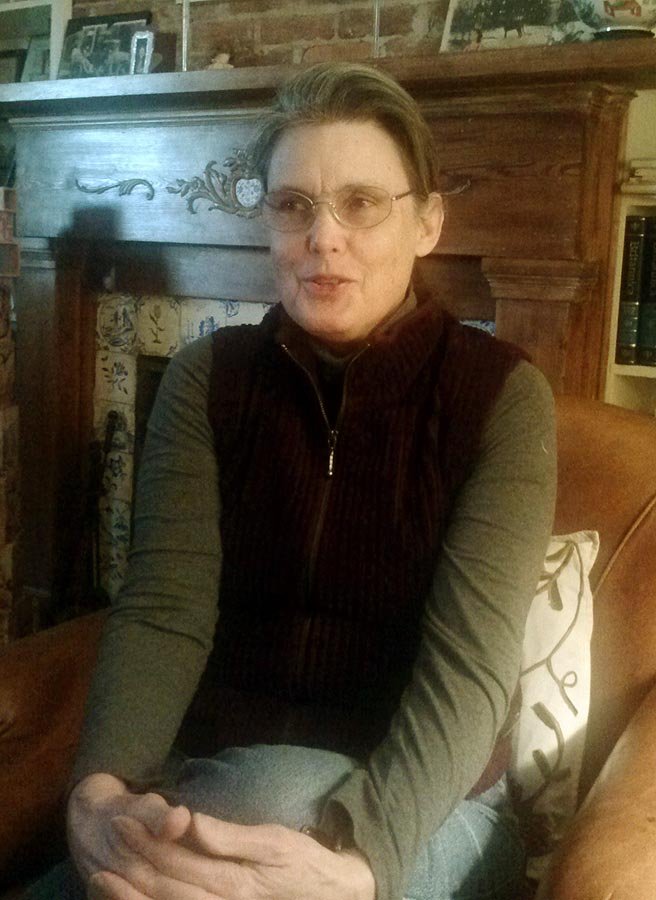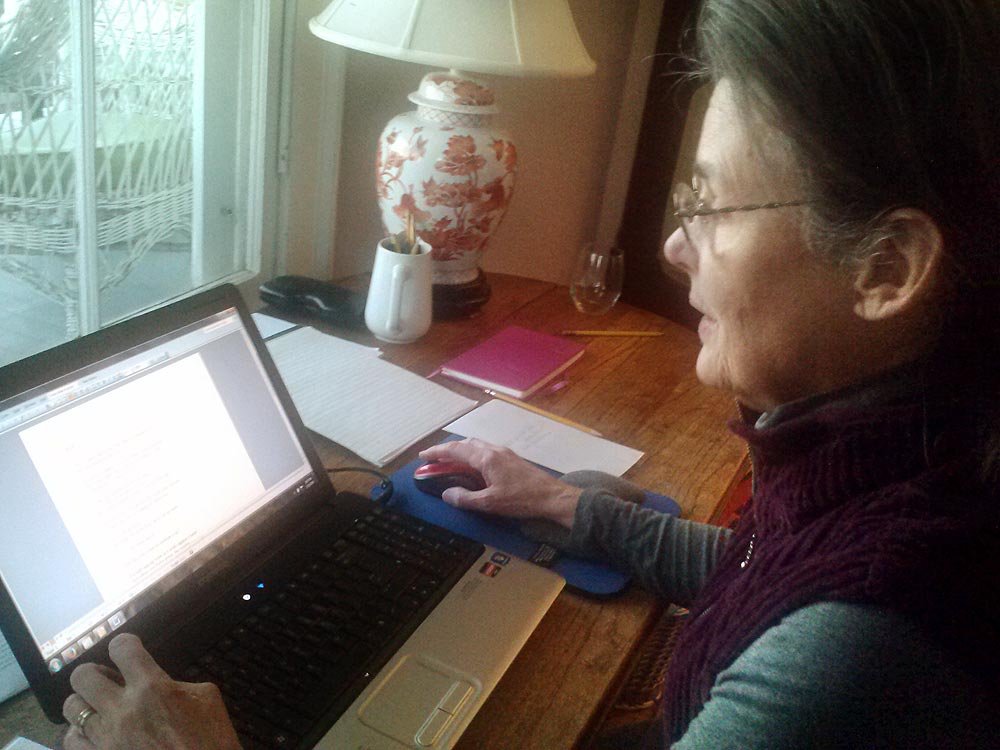SL: Congratulations on the publication of your short story, “Phoenix” in Streetlight’s upcoming Winter Issue. When did you start writing or realize that you were a writer?
JD: I remember that when I was eight years old and in the 3rd grade I wrote a poem, but I was writing down words as soon as I could read. I felt that words held magic. In the 5th grade I was writing stories. I liked to write stories about large families so I could name all the children. I loved names. I’d write stories with families that had seventeen children. [laughs]
SL: Did anyone in your family write?
JD: No, not really. My mother was a painter but did not have faith in her painting and became frustrated. My father was a business man, graduated from Yale, and around our house there were books, but no one was really a writer. It was my grandfather, a train engineer, who was the more imaginative character in my family and probably had the biggest effect on the way I see things. On his train route he would pass quarries and bring home bags of small cut stones and in his backyard built stone castles on hills and stone steps and ponds and planted strawberries and asparagus and had exotic plants. I suppose it was my grandfather who held the imaginative theme. On my mother’s side were a string of Methodist ministers.
SL: Tell us a little something about your writing routine.
JD: When I’m working, I wake up early in the morning around 5:30 to 6:00 am., if I haven’t had insomnia, and fix breakfast and my pot of tea and carry it on a tray to my room. I write until around 9 or 10 but I if I like I’ll stay longer. I write about 30 hours a week.The morning is the best time for my writing because that’s when my ideas are going. Often I have been working on a poem or a story in my dreams and I wake up with the idea and coax it to the page before I’m distracted with the day. I like to think of the time as sacrosanct….no, I don’t like that word…I suppose you can say the mornings are my protected time and a time that my husband understands.

And my Maine Coon cats. I will allow the cats into the room and one will stretch behind my back in the chair like a warm pillow. That’s fine. But I won’t let him on the arm of my chair. I’d have to say that fiction can come and go and is not as hard to hang onto as poetry. And for that reason I have notebooks around the house to write down a line or idea whenever it comes to me. I can be working on one line for weeks and sometimes a line or story will fix itself while I’m making potatoes. Prose is easier to reconstruct than poetry. And I have to say, I’ve never had a single good poem come out of a prompt.
SL: Really? That’s a pretty strong assertion. I know a lot of people who would be surprised to hear that. Why don’t you like prompts?
JD: I have never liked directive kind of things. I was stubborn in school and not a very good student. I did have a wonderful teacher at the Fine Arts Work Center, Vijay Seshadri, who gave us resources to back up the ideas he talked about. He wanted us to think about things and he promoted intellectual conversation about aspects of poetry that were part of the theme of his lecture. We could write a poem in response to the ideas we talked about. His class was knowledge enhancing and opened up new ways of thinking for me. Prompts feel like an intrusion. I don’t want to sound arrogant. It’s just my process.
SL: What was the genesis of the short story, “Phoenix?”
JD: It was an experience a friend of my husband’s had on a boat sailing from Ecuador. I began to think how this event might have happened. I became fascinated with the “cruiser community” the people who sail and live on their boat. I thought about those women in dank laundry mats in coastal towns, living years with a man with wander lust. Because of my previous work with senior management I understand the psychology of senior management types and based the husband on this type of character.

SL: I admire how skillfully you told the story from both the husband and wife’s point of view. You don’t see much of that in contemporary short stories.
JD: Yes, the “I stories” are more popular these days. But writers like Alice Munro and another Canadian writer Mavis Gallant get inside different heads—I love that. I didn’t have the ending when I started. It wasn’t until about the middle of the first draft that I thought of the ending. I did a lot of revision and got a lot of advice from my critique group—I’ve had two very insightful critique groups over twenty years. It was a story that I saw visually. Not all of my stories come like this but “Phoenix” I could “see.”
Juditha Dowd is the author of Mango In Winter, a full-length collection, and three chapbooks. Her poetry has been nominated for the Pushcart Prize, featured on “Poetry Daily,” and has been published in many journals and anthologies. She is a member of Cool Women, a poetry performance ensemble based in Princeton, New Jersey.
–Trudy Hale, editor
Follow us!
Share this post with your friends.
